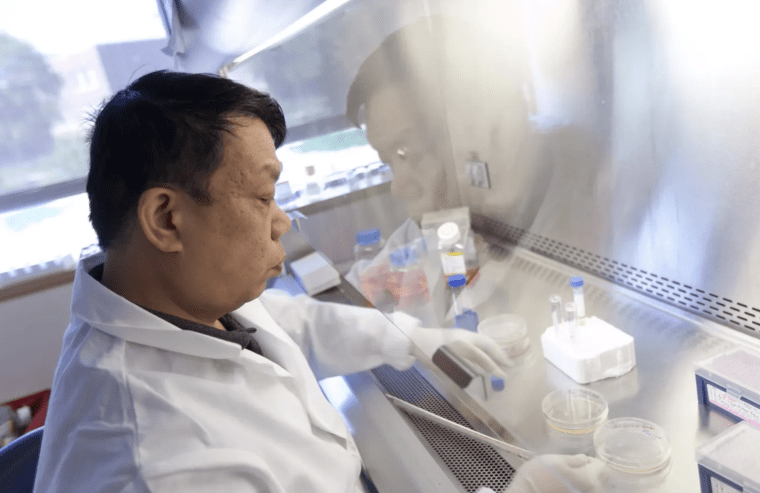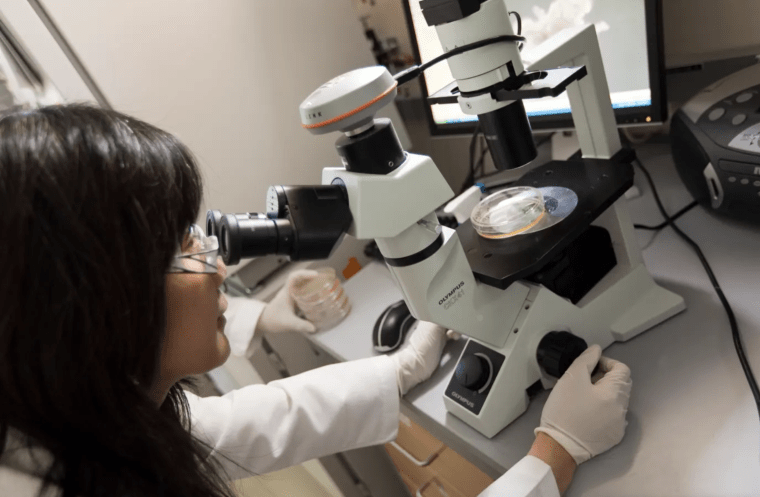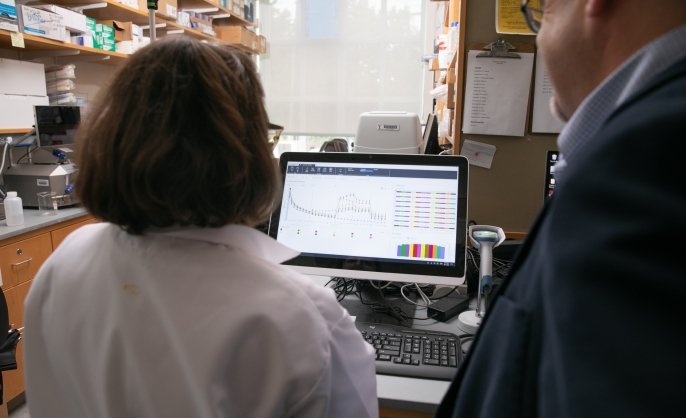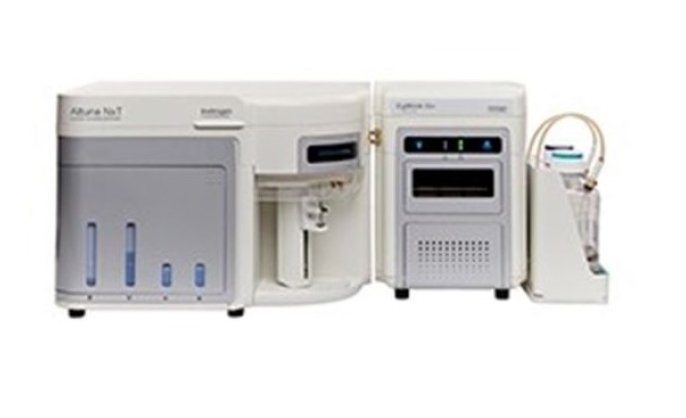hESCs/iPSC culture training
Learn to work with stem cells
The Yale Stem Cell Center offers training for researchers at Yale University who have extensive cell culture experience but are not yet experienced in handling human embryonic stem cells (hESCs) and induced pluripotent stem cells (iPSCs).
The hESC/iPSC Core provides training and ongoing support in thawing, maintenance, expansion, differentiation, and cryopreservation of hESCs/iPSCs.

Photo credit: Robert A. Lisak
Training requirements for hESCs culture training
Yale investigators who are interested in being trained on working with hESCs in the hESC/iPSC Core Facility must complete the following requirements:
- Review the Yale Provost's policy on hESC research.
- Complete the training required by the ESCRO Committee.
- Be an approved investigator on an approved Embryonic Stem Cell Research Oversight (ESCRO) protocol.
Investigators from other institutions who are interested in being trained on working with iPSCs in the hESC/iPSC Core contact Caihong QIu for the details.

Photo credit: Robert A. Lisak
Training schedules and course fees
The training course is a 2.5-day course offered during a 5-day week from 1:00 - 4:00 p.m. This course is for users who have never cultured human pluripotent stem cells and would benefit from a hands-on training from hESC/iPSC Core staff. Four individuals can be trained at once. The course fee is $720.
The training schedule is as follows:
Day 1: Lecture on hESC/iPSC. Identify undifferentiated and differentiated hESC colonies. Make/check feeders and medium. Feed hESCs.
Day 2: Passage hESC/iPSC by weeding.
Day 3: Form EB for differentiation. Make Matrigel plate.
Day 4: Pass hESC/iPSC by cut-paste from feeder-free serum-free to feeder-free and serum-free conditions.
Day 5: Check cells. Discussion and presentation of training certificate.
Fees include all training supplies needed to develop hESC lines. The new lines that are grown during training will remain the property of the hESC/iPSC Core upon completion of the training. Trainees with a valid Yale ID will be provided with access to the hESC/iPSC Core and to the on-line scheduling software to schedule use of the equipment.
Trainees who are not affiliated with an hESC lab should contact Caihong Qiu.
Available to Yale researchers & external researchers

